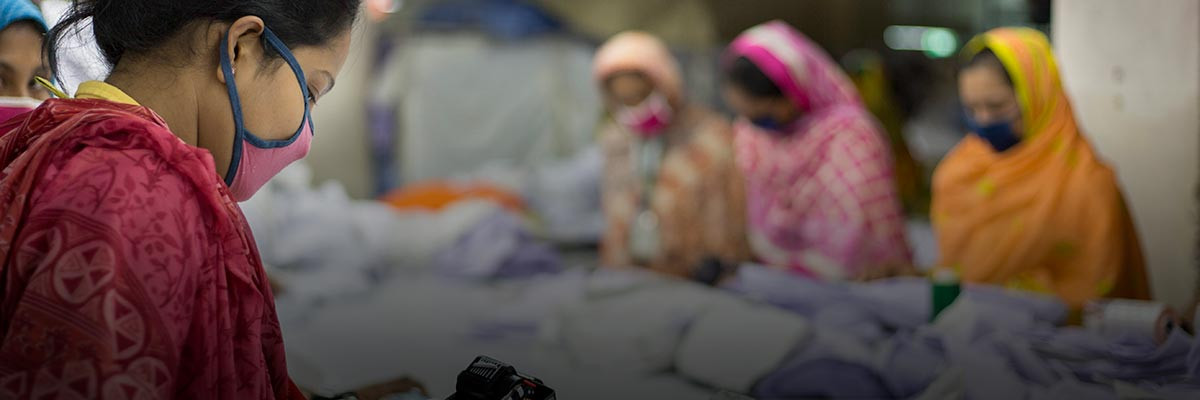
To realize the ambitions of the Sustainable Development Goals (SDGs), the UN High-Level Panel on Women’s Economic Empowerment says there is a “pressing need to step up actions to close gender gaps and ensure the full economic empowerment of women.” The private sector has an important role to play in this ambition—particularly in sectors, like apparel, that employ large numbers of women all over the world.
Over the last decade, many apparel companies, industry coalitions, supplier groups, NGOs, unions, governments, and international coalitions have collaborated to create promising initiatives designed to improve working conditions, build skills, and promote the well-being of women workers in the supply chain. These efforts have built a collective understanding of what makes (and importantly, what doesn’t) for a decent employment opportunity. While these advances should be recognized, more needs to be done to remove barriers to women’s economic empowerment, which is the ability women have to access and control their economic resources, assets, and opportunities, including jobs.
Companies should continue investments and innovation, with the recognition that apparel supply chains, and the demographics and everyday realities of workers within them, are changing. While the apparel sector cannot act alone—government initiatives and international development work will remain important—business has both an opportunity and a responsibility to drive lasting, meaningful improvements that enable female workers to fulfill their potential and maximize the returns of their participation in the global apparel sector.
In a new BSR business brief, “Empowering Female Workers in the Apparel Industry: Three Areas for Business Action,” we highlight key findings from in-depth research conducted by the International Center for Research on Women (ICRW) and supported by C&A Foundation and the Levi Strauss Foundation. We propose three areas where apparel companies can take action to promote women workers’ well-being and economic empowerment:
- Address informality: For many women in the apparel sector, that job represents their first formal job and income—both of which are key ingredients to women’s economic empowerment. Unfortunately, the global apparel industry relies heavily on informal operations, and ICRW’s research affirmed the need for concerted action on informal work. Global companies should expand current initiatives into more informal parts of the supply chain where the needs are greater. It is also time to come together in constructive dialogue to support policies that favor and promote formality in the workplace.
- Go further to end violence: Economic empowerment is impossible in the face of gender-based violence at work and at home. A recent CARE report found that nearly one in three female garment factory workers in Cambodia said they experienced sexual harassment in the workplace in the past year, which cost companies US$89 million in lost productivity. Efforts to address violence should consider not only workplace interventions, but also ways to align with and strengthen public systems to address vulnerabilities and patterns of harassment and violence outside of the workplace.
- Recognize childcare needs: Around the world, women take on a disproportionate amount of unpaid care work. Given that apparel workers are predominantly women in their reproductive years, lack of access to affordable, quality childcare remains a barrier for effective, long-term participation at work. While business should support the wider intention of SDG 5 to provide women with equal access to and representation in all economic and political spheres, supporting access to high-quality, family-centered childcare is an important first step that apparel sector companies can take immediately.
These three interconnected opportunities represent meaningful actions apparel companies can take now to support women’s economic empowerment. Companies can adopt policies; make investments; and participate in partnerships with NGOs, community organizations, and others to promote women’s economic empowerment. Business can also exert positive influence by sharing data, conducting research, and engaging in advocacy to increase awareness of the factors that promote equity and gender equality.
Read our business brief, which is based on research by ICRW and supported by C&A Foundation and the Levi Strauss Foundation.
BSR’s latest sustainability insights and events straight to your inbox.
Topics
Let’s talk about how BSR can help you to transform your business and achieve your sustainability goals.








